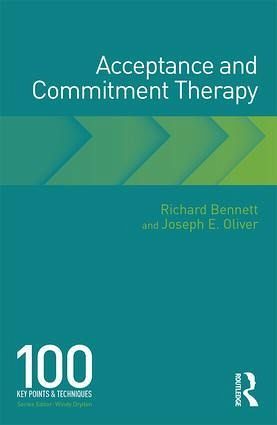Nicht lieferbar

Acceptance and Commitment Therapy
100 Key Points and Techniques
Acceptance and Commitment Therapy: 100 Key Points and Techniques offers a comprehensive, yet concise, overview of the central features of the philosophy, theory, and practical application of ACT. It explains and demonstrates the range of acceptance, mindfulness, and behaviour change strategies that can be used in the service of helping people increase their psychological flexibility and wellbeing.Divided into three main parts, the book covers the 'Head, Hands, and Heart' of the approach, moving from the basics of behavioural psychology, via the key principles of Relational Frame Theory and the...
Acceptance and Commitment Therapy: 100 Key Points and Techniques offers a comprehensive, yet concise, overview of the central features of the philosophy, theory, and practical application of ACT. It explains and demonstrates the range of acceptance, mindfulness, and behaviour change strategies that can be used in the service of helping people increase their psychological flexibility and wellbeing.
Divided into three main parts, the book covers the 'Head, Hands, and Heart' of the approach, moving from the basics of behavioural psychology, via the key principles of Relational Frame Theory and the Psychological Flexibility model, to a detailed description of how ACT is practiced, providing the reader with a solid grounding from which to develop their delivery of ACT-consistent interventions. It concludes by addressing key decisions to make in practice and how best to attend to the therapeutic process.
The authors of Acceptance and Commitment Therapy bring a wealth of experience of using ACT in their own therapy practice and of training and supervising others in developing knowledge and skills in the approach. This book will appeal to practitioners looking to further their theoretical knowledge and hands-on skills and those seeking a useful reference for all aspects of their ACT practice.
Divided into three main parts, the book covers the 'Head, Hands, and Heart' of the approach, moving from the basics of behavioural psychology, via the key principles of Relational Frame Theory and the Psychological Flexibility model, to a detailed description of how ACT is practiced, providing the reader with a solid grounding from which to develop their delivery of ACT-consistent interventions. It concludes by addressing key decisions to make in practice and how best to attend to the therapeutic process.
The authors of Acceptance and Commitment Therapy bring a wealth of experience of using ACT in their own therapy practice and of training and supervising others in developing knowledge and skills in the approach. This book will appeal to practitioners looking to further their theoretical knowledge and hands-on skills and those seeking a useful reference for all aspects of their ACT practice.





